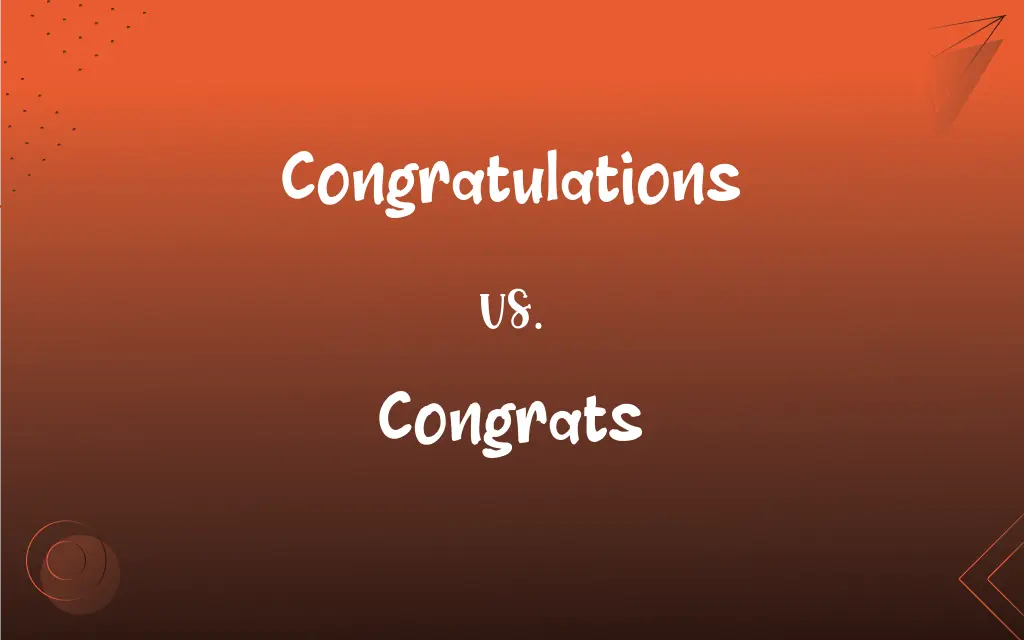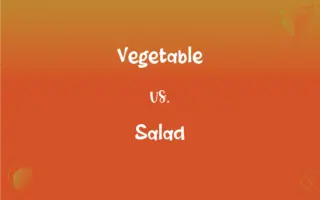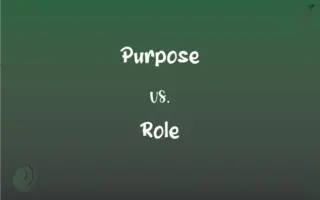Congratulations vs. Congrats: What's the Difference?
By Janet White || Updated on November 29, 2023
"Congratulations" is a formal expression of praise for an achievement. "Congrats" is a more casual, abbreviated form of "congratulations."

Key Differences
"Congratulations" is a formal expression used to commend someone on an achievement or milestone. It is often used in formal communications, such as letters or official announcements. The word carries a sense of sincerity and significant recognition. "Congrats," on the other hand, is an informal abbreviation of "congratulations." It is commonly used in casual conversations, text messages, or social media posts. Its brevity reflects a more relaxed and friendly tone.
The usage of "congratulations" often implies a deeper level of acknowledgement and is typically reserved for more significant events like graduations, weddings, or major professional achievements. This word is often accompanied by a more elaborate expression of praise or a detailed acknowledgment of the specific accomplishment. "Congrats," being a shortened form, is used in more everyday situations, like congratulating someone on a small personal victory or a minor accomplishment. It's a quick, easy way to express happiness for someone's success.
In formal writing and speech, "congratulations" is preferred due to its complete form. It carries an air of respectability and formality. Using "congratulations" in speeches, formal letters, or in any official context adds to the gravity of the acknowledgment. In contrast, "congrats" is seen as too casual for such settings. Its use is more appropriate in informal interactions, such as casual conversations, quick notes, or informal emails.
Pronunciation and emphasis differ between the two words. "Congratulations" is longer and often spoken with more emphasis, potentially conveying a greater depth of feeling or respect. "Congrats," being shorter and more colloquial, is often delivered in a lighter, more casual tone. This difference in pronunciation and tone reflects the contexts in which each word is typically used.
In summary, while "congratulations" and "congrats" both serve to express happiness or approval for someone's achievement, the formality, context of use, and level of emphasis distinguish them. "Congratulations" is formal and comprehensive, suitable for significant occasions and formal communication, while "congrats" is informal, brief, and more fitting for everyday, casual exchanges.
ADVERTISEMENT
Comparison Chart
Formality
Formal and respectful
Informal and casual
Length
Longer, complete word
Abbreviated form
Context of Use
Formal events, official communications
Casual conversations, informal messages
Tone
Serious, respectful
Light, friendly
Appropriate Occasions
Significant achievements, ceremonies
Everyday successes, informal acknowledgments
ADVERTISEMENT
Congratulations and Congrats Definitions
Congratulations
A formal way of expressing joy for someone's good fortune.
Congratulations on your new home, may it bring you lots of happiness.
Congrats
Informal praise for a small accomplishment.
Congrats on hitting your sales target this month!
Congratulations
An expression of approval for a notable achievement.
Congratulations on your retirement, you've had an illustrious career.
Congrats
A casual way to say congratulations.
Congrats on passing your driving test, enjoy the freedom!
Congratulations
An expression of praise for an achievement.
Congratulations on your promotion, your hard work has paid off!
Congrats
A short commendation for a personal victory.
Congrats on winning the baking contest, your cake was amazing!
Congratulations
Acknowledgment of someone's success.
Congratulations on winning the championship, you truly deserved it.
Congrats
A brief acknowledgment of success.
Congrats on your new job, you're going to do great!
Congratulations
A commendation for an accomplishment.
Congratulations on completing your degree, it's a significant milestone.
Congrats
A quick expression of happiness for someone's achievement.
Congrats on your engagement, what wonderful news!
Congratulations
The act of expressing joy or acknowledgment, as for the achievement or good fortune of another.
Congrats
Congratulations.
Congratulations
Often congratulations An expression of such joy or acknowledgment
Sent him my congratulations on winning the award.
Congrats
(informal) congratulations
You were cast in the show? Congrats!
Congratulations
Used to express such joy or acknowledgment
I heard you got a promotion. Congratulations!.
Congrats
(informal) congratulations
Accept our congrats for all your hard work!
Congratulations
Expressing praise and approval, expressing approbation.
Congratulations
Plural of congratulation
Congratulations
An expression of approval and commendation;
He always appreciated praise for his work
FAQs
When should I use "congratulations" instead of "congrats"?
Use "congratulations" in formal settings or for significant achievements.
Can I use "congratulations" in a text message?
Yes, but "congrats" is more commonly used in texts due to its brevity.
Is "congrats" considered informal?
Yes, "congrats" is an informal abbreviation of "congratulations."
Is "congrats" appropriate in professional emails?
It depends on the workplace culture; "congrats" is generally more casual.
Can "congratulations" be used for any type of achievement?
Yes, it's suitable for any achievement, big or small.
Is it okay to use "congrats" in a formal letter?
Generally no, "congratulations" is preferred in formal letters.
Are there occasions where "congrats" is inappropriate?
Yes, in very formal or significant events, "congratulations" is more suitable.
Can "congratulations" be used casually?
Yes, but it's more common to use "congrats" in casual situations.
Does "congratulations" imply more respect than "congrats"?
Yes, it's often perceived as more respectful and sincere.
Can "congratulations" be abbreviated in any other way?
Not conventionally, "congrats" is the standard abbreviation.
Can "congrats" be perceived as insincere?
It might be, in contexts where a more formal acknowledgment is expected.
Can "congrats" be used in formal speeches?
It's less common and might be seen as too casual.
Is it appropriate to use emojis with "congratulations"?
In casual settings, yes, but avoid it in formal communication.
Are there cultural differences in using "congratulations" or "congrats"?
Yes, the preference and perception can vary across cultures.
Is "congrats" too informal for congratulating a superior?
It might be, depending on the relationship and workplace culture.
Is "congratulations" too formal for everyday use?
It can be, especially if the achievement is minor.
Is "congratulations" commonly used in speeches?
Yes, especially in formal speeches and ceremonies.
Can "congratulations" be used for negative achievements?
It's not usual; "congratulations" is typically for positive achievements.
Is "congrats" suitable for congratulating a colleague?
Yes, if the workplace environment is not overly formal.
Can "congratulations" be used sarcastically?
Yes, like many expressions, it can be used sarcastically.
About Author
Written by
Janet WhiteJanet White has been an esteemed writer and blogger for Difference Wiki. Holding a Master's degree in Science and Medical Journalism from the prestigious Boston University, she has consistently demonstrated her expertise and passion for her field. When she's not immersed in her work, Janet relishes her time exercising, delving into a good book, and cherishing moments with friends and family.
































































